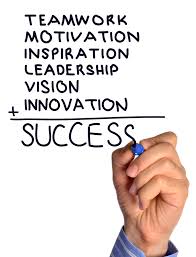Did you know that your business is the direct reflection of YOU yourself?
How do you lead your business? Are you looking for best leadership practices to help your business grow to your dream scale? What are your leadership principles?
In business, ‘leadership’ has remained a matter of debate and discussion. Lots of management gurus have contributed to the idea of business leadership time to time. The topic of business leadership has always been troubling the management gurus and business leaders because of its importance for overall success of the business.
Nearly two centuries ago Henri Fayol gave 14 principles for business management. Businesses are being governed by these principles for a long time. But as business environment across the world has been changing these principles also have changed and many of them are no longer relevant today.
“To organize means building up the dual structure- material and human, of the undertaking. To command means binding together, unifying and harmonizing all activity and effort.” Henry Fayol

I am Rakesh Sharma business coach and consultant. I work with business owners and support them to grow their revenue and maximize their profits by developing business leadership and empowering their teams with systems and processes.
From three decades of my experience of working in the industry a leadership positions across different world class organizations, I have listed 19 Business Leadership Principles which are must to implement for creating a successful and thriving business. I am listing and explaining them below. I advise to implement these principles for making it a great success.
1. Strategic clarity: The business leaders must be extremely clear about the Vision, Mission and the business values. The organization structure, roles and responsibilities, tactics and action planning have to be created accordingly. This is the first principle every business leader must follow to achieve the dream goals of the business.
2. Planning: As per the principle of planning, every aspect of the business must be planned thoughtfully. Business leaders must plan for business goals, strategies to achieve planned goals, resources required, implementation of strategies and continuous monitoring and controlling. If you plan thoroughly you will be able to create your dream business.
3. Division of labor: Every employee must be specialized in at least one job. Which will be based on his key skills. This will be called as his primary responsibility. However the employees should also be trained in at-least one more job which must be called is secondary responsibility.
4. Management authority and unity of command: Managers must be given enough authority to give directions to their respective team members and subordinates. The employees must report to only one manager as far as possible. Reporting to multiple bosses only creates confusion.
5. Centre of authority: All the decision-making powers must not get centered with the business head or top boss only. For successful and productive management, all the managers and front-liners must be given adequate authority to perform their role.
6. Respect and personal equity: All the employees across the organization irrespective of their job title and job role are important and must be treated with respect and dignity. They must be treated with justice and their personal equity must be maintained.
7. Design for mutual benefit: The organization must be designed to create the job roles and hierarchy in such a way so that it is in mutual interest of the growth of the organization as well as employees’ individual career progression. Employees’ growth is important as organization’s growth.
8. Employee’s empowerment and initiative: The leadership must create a structure so that employees are empowered to take initiatives in their respective roles, for benefit of the organization.
9. Discipline: Discipline is the key to success in any field of life. In a business organization it is expected that employees follow the principle of obedience, line of command and must work with high integrity discipline and commitment.
10. Pay for performance: Business leaders must install a system of rewards and recognition by giving performance related incentives and bonus to the employees. Therefore, business leaders must implement a system of ‘pay for performance’.
11. Knowledge management: In modern times, the long-term and stable working of employees in a particular organization is rarely seen. Therefore, organizations must develop a system for knowledge management by creating, documenting and managing the knowledge bank within an organization. For this they must create and implement a formal learning and knowledge management system in the business.
12. Systematization: Study the ways employees perform their task, gather all information and knowledge the employees possess, create systems, processes and document standard operating procedures (SOP) so that business predictable results can be achieved and all the new employees can start delivering result in quickest possible.
13. Talent acquisition: Employees must be hired by ensuring that they are talented enough to match the competence required for the job they are going to perform. Subsequently have a formal system for talent building in your business.
14. Smart targets: Every employee must have high level of goals clarity. Their targets must be well defined, they must be specific, measurable, achievable, relevant and time bound. Target must be created after mutual discussion with the concerned employee.
15. Measurement: Business leadership must create and implement a well defined metrics for measuring performance of all employees from top to bottom. What you can measure, you can also improve. Performance and task related data must be created and analyzed for making the business decisions.
16. Innovation and change: The world is continuously evolving. Business world is also changing day by day. Therefore, to cope with the competition and to meet the continuously growing requirements of the customers, management must be focused to innovate their products and ways of delivering service and products to the customer. For this reason, they must the always willing to change and leadership must implement the change management model in the business.
17. Risk management: Business is subjected to multiple risks at any point of time. The risk may be related to changing government policies, emerging technology or related to labour unrest or unforeseen environmental conditions. The business leaders must foresee all such risks and plan to mitigate them before time.
18. Competition benchmarking: The new age business is facing new challenges from competition every day. Therefore as business principle business leaders must continuously carry out competition study and conduct formal benchmarking with the competition best practices and products. The principle of competition benchmarking must be followed by all businesses irrespective of their size.
19. Evolving technology: Technology is changing everyday. New products, production technologies, information technology and technology for delivering the services to the customer are emerging day by day. The management must imbibe the latest technology available in the market and must upgrade themselves continuously to keep pace with market requirement.


My vision is to support a million SME business owners to scale up their business and to support them to create their dream business. My personal experience has been that most of the business owners are not using the basic leadership principles in their business. They are not even aware of these principles.
So my strong recommendation is evaluate your business practices immediately and see if you are using these principles in your business. If you notice a gap immediately cover it by taking appropriate actions.
Happy growing! Happy Selling!



